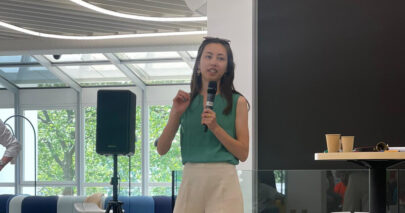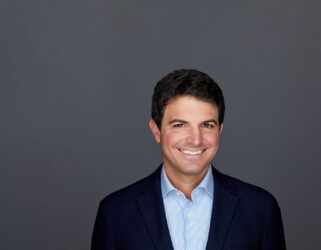
While a lot of emphasis – especially in executive education – is placed on developing individuals, firms and industries, surprisingly much of what may affect a leader or company’s long term success lies outside of these three spheres. According to IMD Professor Arturo Bris, global and national economics can impact anywhere between 20 to 70% of company performance.
“We cannot control the world economy, and we cannot extrapolate,” said Professor Bris, Director of IMD’s World Competitiveness Center. “While leadership is undoubtedly important, we must understand the bigger global economic picture.”
In evaluating financial data and looking at correlations between GDP growth, corporate profitability and real wages, Professor Bris outlined a modern day dilemma that’s been commonly termed the productivity puzzle.
While no clear solution is in sight – hence the name ‘puzzle,’ Professor Bris places innovation as one of the main drivers of the phenomenon. And how we approach innovation may be a key to better working the puzzle.
Professor Bris said we are often misled when we think of innovation. First, in thinking that it mainly concerns manufacturing, as in factory workers, when in fact, in the long term, many skilled professions and white collar jobs will be reduced and eliminated. Second, we are misled in believing that all innovation in itself is great.
“Innovation is great when it has the basic objective to make people better off,” Professor Bris said. “Creating jobs makes people better off and good innovation should also help improve the quantity and quality of jobs if it is to help the overall economy.”
But for the time being, that isn’t the direction of innovation. According to the OECD, over the next 5 years 12% of the world’s jobs will be eliminated because of innovation.
Much like the puzzle, there seems no solution to this growing reality. But, observing trends occurring around the world at national levels, Professor Bris highlights the directions nations are taking in the face of current world economics.
With Brexit and the US election recently passing as examples, protectionism is one way some nations are dealing with today’s circumstances. When losing ground at home, cut off low cost labor by curbing imports.
Subsidies are another tool governments use and they have played important roles in countries like Thailand and Venezuela. For some nations, tax policy is their main tool. For France’s François Fillon, he sees increasing productivity (loosening labor laws), as well as a reduction of the public sector, as a key. But the most successful cases that Bris sees is nations that focus on job creation – most often seen in epistocracies like Singapore, Hong Kong and Middle Eastern countries where decisions are made by relatively few and they often dare to go against popular thought.
But no matter what politicians and governments do moving forward, Professor Bris encourages business leaders to get involved.
“Let’s remember that corporate profitability is reaching new heights and that needs to be transferred down to working classes in a valuable way,” Professor Bris said. “It’s up to business leaders to figure out how to do this.”
IMD Professor Arturo Bris was a keynote speaker at IMD’s OWP program in Singapore.
Get a glimpse of OWP on IMD’s flicker channel
Learn more about the executive program Orchestrating Winning Performance in Singapore.



